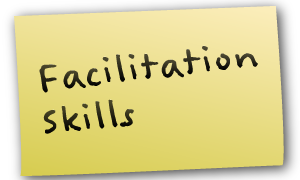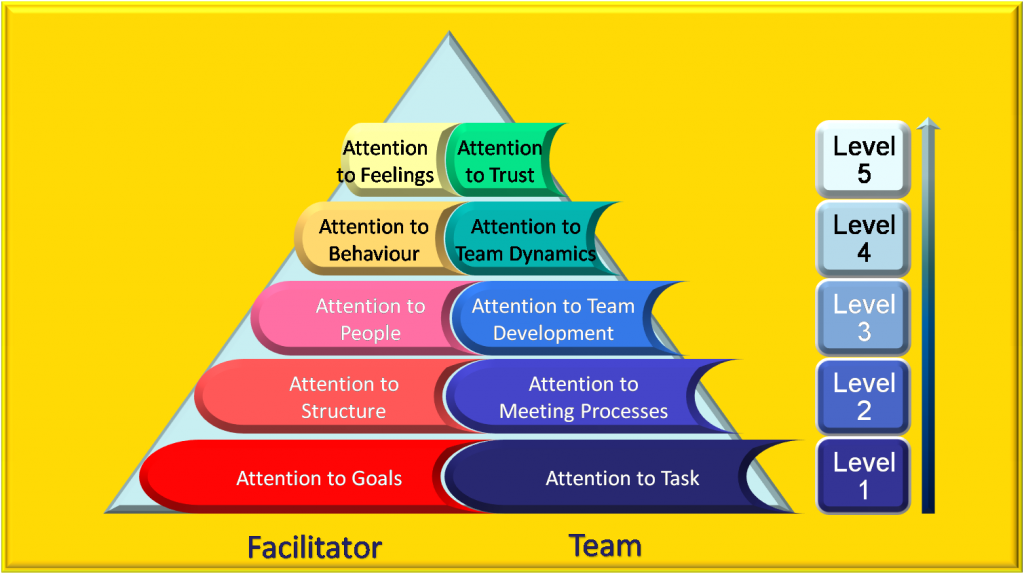 Hello,
Hello,
Today, I will try to provide answers for those people that sometimes are not sure why they need a facilitator. In the past few months, I’ve had a lot of short talks with colleges and friends; a common comment was “why do I need a facilitator?” or “What is the facilitator’s role?” All of the people had good points to avoid using a facilitator. So I decided to do this short post to express my opinion about “why” people need a facilitator.
Why Use a Facilitator?
For many people, meetings are viewed as a dreaded evil to be avoided at all costs: far too little gets accomplished, much of the discussion is unfocused and unproductive, and a lot of time is wasted.
If you lead important group meetings, you know how difficult it can be to get a group engaged right from the beginning, to keep them focused and on track, to deal with difficult personalities and dysfunctional behavior, to build consensus when people disagree, and to ensure that full commitment is gained for follow through. Facilitators use facilitated sessions as a tool for addressing these issues.
A facilitated session is…
- A highly structured meeting in which the facilitator guides the participants through a series of predefined steps to arrive at a result that is created, understood and accepted by all participants.
The role of the facilitator is to…
- Use interactions and techniques that engage the hearts, minds and souls of the participants in the work.
At their best, facilitators are able to help participants excel as a team in focusing on the issues, building a common vision and committing to the actions that will bring that vision into reality!
When SHOULD You Use A Facilitator?
- Critical Results: If the results of the meeting are critical to the success of the enterprise, and there will be a variety of views in the room, consider using a facilitator.
- Strong Opinions: If there are many strong opinions in the room and a consensus is required, consider using a facilitator.
- No Good Answers: If the situation is such that there are no apparent good answers and new, creative solutions are called for, consider using a facilitator.
- You Are Vested: If you, the meeting leader, are strongly vested in a particular position, but want to be open to other possible alternatives, consider using a facilitator.
- Team Ownership Required: If the team – not just one or two people – needs to feel ownership of the solution, consider using a facilitator.
- Neutral Party Needed: If the discussion is best guided by a neutral party to engender trust or participation, consider using a facilitator.
- Lack of Expertise: If there is a lack of experience or expertise in managing a group through the work process (e.g., strategic planning), consider using a facilitator.
- Undefined Approach: If the product of the meeting or the work process needed to create the product is unclear or ill-defined, consider using a facilitator.
If you have to consider two or more of these items, definitely: USE A FACILITATOR!
When Should a Facilitator NOT Be Used?
It’s also important to understand the circumstances when it doesn’t make sense to engage a facilitator. You do not need a facilitator when:
- The decision has already been made.
- Decision makers are not open to alternatives other than their own.
- The meeting is information only and requires no engagement of the group.
- The group is very small.
- There is a commonality of opinion on how to proceed.
Meetings are expensive. When you have the right facilitator with the corresponding skill set you tremendously enhance the quality of your meeting deliverables and make them much more cost-effective.
Something you need to keep in mind, you don’t need an external facilitator to get a good result. You have to decide if an external facilitator could add more value than somebody internal. I also recommend to train your people to play the role of facilitator. It is a very useful skill to have internally.
Here I also found a good image where you can see the facilitator’s focus and the difference with the team’s focus:

I hope this helps to clarify your thoughts about the needs or not of a facilitator.
Thanks,
Omar
Note: original article from "Leadership Strategies - the facilitation company" More info about facilitator role: mindtools website
